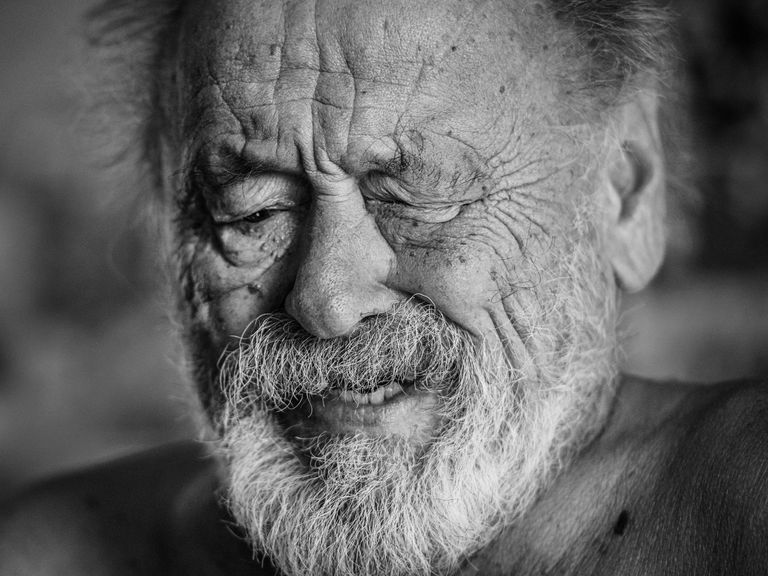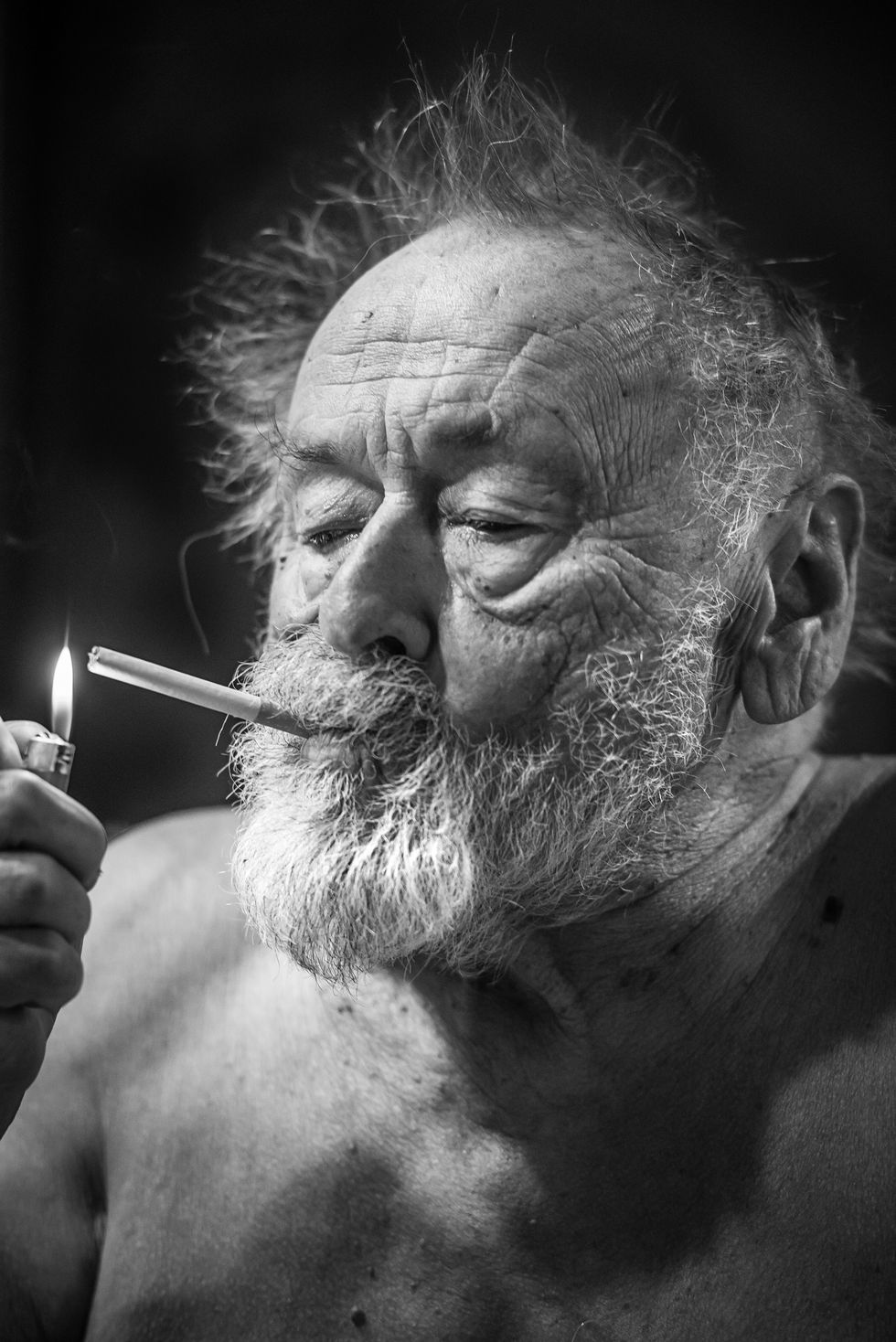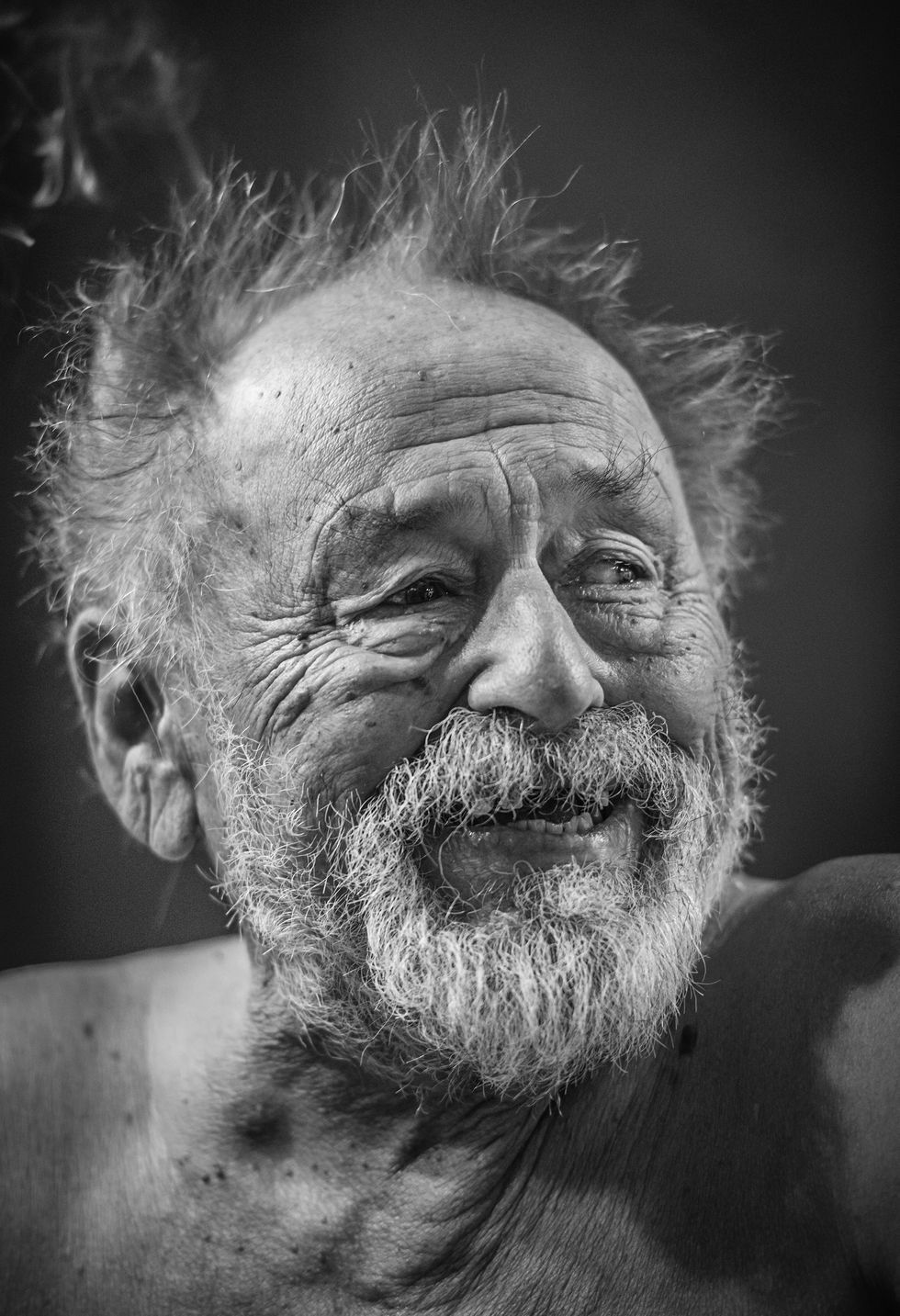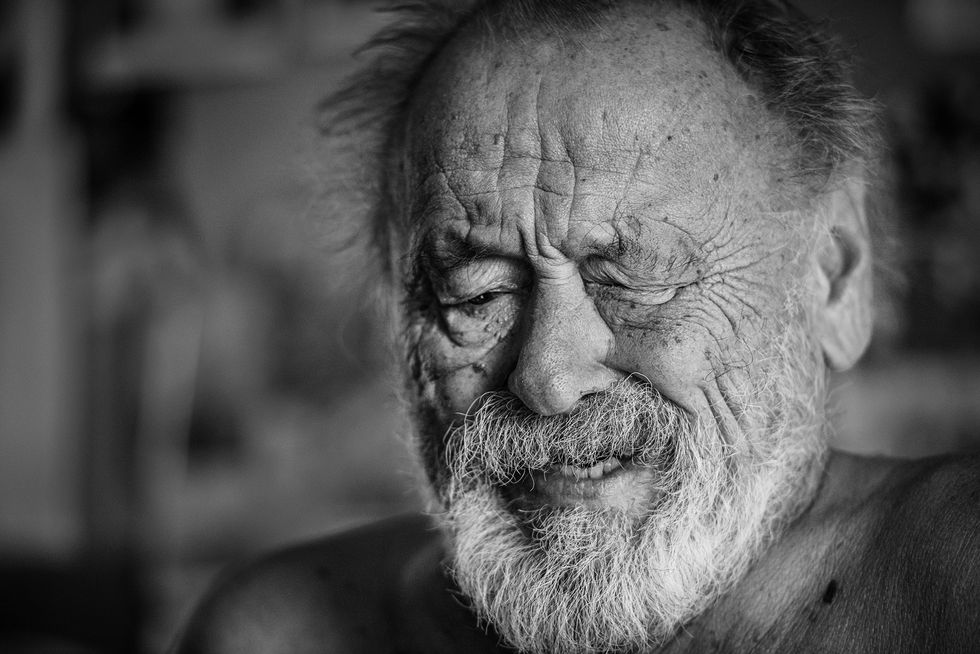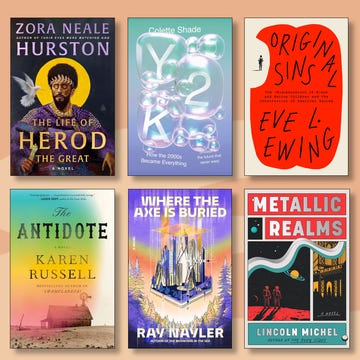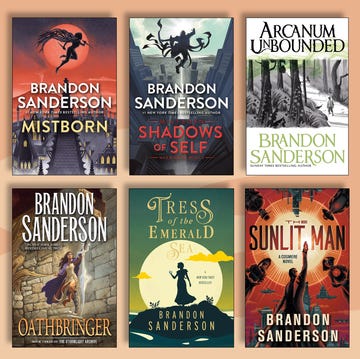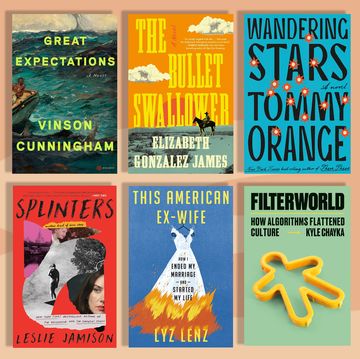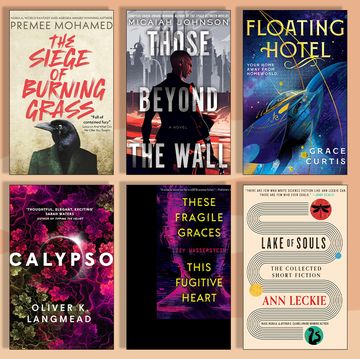Author Jim Harrison died on Saturday, March 26, of unknown causes at his home in Patagonia, Arizona. He was 78 years old. Four months ago, I had the honor of sitting down with one of my literary heroes for a few hours in his writing studio in Montana to talk about art, literature, food, wine, and women.
HIS CABIN
Jim Harrison's voice sounds like he's spent half his life gargling gravel. It's a whiskey-soaked, cigarette-tainted growl that he spent five decades earning one drink and one smoke at a time. That voice greets me from the other room where he sits at his writing desk. "Hello, what's your name?" says Harrison, welcoming me into his den.
I'm here, at Harrison's cabin on a bench along the Yellowstone River outside of Livingston, Montana. One of America's great and most underappreciated authors is late in the winter of his life. His mind is sharp, but his health is tenuous. There are not many opportunities left to hear the voice that helped shape the Twentieth Century American West .
His poetry book A Dead Man's Float came out a little over a month ago. A novella, The Ancient Minstrel, came out in early March, his 39th book. His contemporaries are slowing down, content to shimmer into retirement; at 78, Harrison still smolders. His canon is as diverse as it is prodigious: 14 books of poetry, 11 novels, 9 novellas, 3 non-fiction works and one children's book. But his poetry is what he wishes to be remembered for. "We are suppose to write poetry to keep the gods alive," says Harrison.
When Harrison was seven years old, he was stabbed in the eye by a neighbor girl wielding a broken bottle during a quarrel and was blinded. The eye still opens, but it looks like it's going fishing while the other eye might as well be bird hunting. It's hard to tell where he's looking most of the time. He now sits at his desk with his shirt off, dressed in grey fleece shorts and little else. He wears light-brown hiking boots half-on, half off. His hair is wild and uncombed, a swirl of grey and white. His goatee is cigarette-stained, a battered forest of white stubble. When you skin a bear, Harrison once wrote, it looks hauntingly like a human being. With his shirt off, Harrison closely resembles a bear.
Harrison's hand quakes as he lights another cigarette and takes a drag. "Either you can do what others want, or you can do what you want to do," he says. "That's an easy call." He exhales the smoke through a gap where his three front teeth used to be. It's as if there is a fire deep inside him, bellowing out smoke.
HIS ART
Harrison's wife of 55 years, Linda, passed away October 2 of a rare lung disease. It's still a bit too raw to discuss, one more open wound in a lifetime full of hurt.
His father and sister were killed in a car accident when he was twenty-one. Their deaths, he says, were the last cord that tethered him to the world. Years later he fell off a cliff while bird hunting and was bedridden for several months. Thomas McGuane, his good friend since college days at Michigan State University, urged him to write. His first book, Wolf: A False Memoir, came out during this period, but getting it published was not without its own anxieties. Harrison mailed the manuscript—his only copy—in the midst of a mail strike, and it was lost for over a month. It wasn't until his older brother convinced the Postal Service to allow him to search through stacks of mail that it was recovered. His brother placed it on Simon & Schuster's desk and a career was born."I wasn't taking myself seriously as a novelist, and then it became my day job," says Harrison.
For the next decade, he, his wife, and their two daughters lived on less than $9,000 a year. They referred to that time as "The Macaroni Years." Then he wrote Legends of the Fall and everything changed. The first draft took just nine days, something rumbling from deep within him. "It was like taking dictation," says Harrison. It was the only book he typed, one finger at a time. (He typically composes in longhand and faxes his manuscripts to the same secretary he's had in Michigan for 35 years.) It became his best-selling and most famous work. He optioned the novella to Hollywood, and the film that was soon made starred Brad Pitt. One day Harrison read in the Detroit Free Press that he was earning more money at that moment than the president of General Motors.
But success, at least in the traditional sense, has never been much of a concern for Harrison. Instead, he's always sought safe haven in the woods of northern Michigan, a desire for solace that he shares with many of his protagonists. "You can be in a thicket and see out, but people can't see you in there. We all know the woods are safer than people," he says. Over the years, he's been offered numerous teaching positions at prestigious creative-writing programs throughout the country. They just wanted a name, he says. He tried it once, for two years; it didn't take. He was offered $75,000 a year to take a gig at a top university. He turned it down. Somebody has to be outside, he told them. The academic life can't co-exist with the life of a poet.
HIS BODY
Harrison played high school football the last year before face masks were routinely used, and the physical damage the game unleashed lingers to this day. His knees and back were battered, his sinuses crushed. "I had a concussion I didn't get over for three years," he says. "I think that's why I'm goofy."
He takes another long drag from one of countless cigarettes. The shades are drawn across the front door and windows in his modest writing studio. It reeks like a stale, lonely highway bar. Duke Ellington emanates from a vintage radio in the other room. A chestnut-and-white cowhide lays sprawled on the carpet next to his disheveled bed. Longhaired Mexican masks and an otter pelt adorn the doorway to our right. On the wall behind Harrison is a giant bulletin board with Buddhist and Taoist maxims. On his desk sits two boxes of American Spirits, one empty and the other unopened. Stacks of yellow legal pads sit in front of him. Nothing is on the wall in front of his desk. When he writes, he stares into the void.
He meditates daily, but there are limits now. "I can't get in the lotus position anymore after my spinal operation," he says. He stands to reveal the incision on his tailbone from a surgery four years ago. His shorts hang loosely off his ass. He suffers from shingles, which zaps his nerves with what feel like electric pulses. Clothing hurts, so he wears very little.
It's getting harder each year to move through the world.
HIS APPETITE
"Would you like some vodka?" he asks me.
Harrison has just polished off a glass of Les Sang des Cailloux, his favorite wine. He pours himself a tumbler of Smirnoff, then splashes a few drips of water on top of it. It's just after 4:00 p.m. He has several coughing fits as he drinks, and during one he spits up vodka onto the dirty teal carpet. "The flap in my esophagus doesn't work properly," he says. "That is how Edward Abbey died. Esophagus cancer. I knew him quite well. He told his wife to quit complaining about her stomachache and then she suddenly died of stomach cancer."
His friends worry about him but know there is no changing his ways. Bev, a bartender at Glenn's Bar in Livingston says, "He's the only man who can smoke on campus." Brian Menges, chef and owner of 2nd Street Bistro in the same town, says, "Jim's the only person to have smoked a cigarette in my restaurant. When I met him we started talking, and he pulled out a cigarette and started smoking it. I was so star-struck I couldn't tell him to put it out. The rest of the restaurant was glaring at me."
Food and writing have always been closely aligned in Harrison's mind. He once took an assignment from Esquire to trout-fish the Seine River, even though he knew it was a flawed premise. "There aren't any trout in the Seine," Harrison says. "I loved the idea of being in a little skiff floating down the Seine fly-fishing for brown trout, though." He wrote a cookbook titled, The Raw and the Cooked: Adventures of a Roving Gourmand. Mario Batali visits Harrison for a few days each year. He airmails coolers of food weeks ahead of time to prepare for a smorgasbord of gluttony.
HIS HEARTBREAK
Harrison is a man of routine. He takes three to four naps a day. Many of his characters have come from dreams. One day while writing Wolf: A False Memoir, he saw a female wolf on a two-track outside his cabin in upper Michigan and their eyes locked. That night he dreamed that she was hit by a car then he picked her up and she flowed into his mouth and filled out his body. He awoke and jumped out of the bed so high that he cut his head on the chandelier."I was howling and ran outside naked. I was yelling and howling all over the yard," says Harrison. "My poor lab at the time was scared for days." Still, it was a long time before he was ready to write. Harrison thinks about his books for years before the first word is ever written.
He struggles to catch his breath these days. He is constantly gasping, coughing up a half-century of sin. But get him going on certain subjects, like bird hunting, and he can talk for hours."You can train any dog to do anything, you know? Rose was a very good bird dog even though she was a retriever. Her ass would wag one way for grouse and one way for woodcock, so I was always ready," says Harrison.
Each year for the past twenty-five, Harrison and Linda migrated south with the songbirds and spent half their time in Patagonia, Arizona and the other half up here. His mother once counted 115 different bird species near their patio on the Mexican border. Another time, a migrant family broke into his house in search of canned foods and warm clothes. He didn't mind. "I meet them down at the river. They're such nice people and so hardworking," Harrison says. "Donald Trump calls them 'rabid-dog rapists.' I wish somebody would shoot him."
Harrison and Linda loved driving up the Shields Valley in autumn as the cinnamon-scented cottonwoods turned butter-yellow. He's not sure he wants to make that drive by himself, now that Linda is gone."I talk to my wife sometimes, you know. You would too after 55 years," Harrison says. "After she died, I was so depressed I was thinking of suicide. And then her voice came to me and said, 'You have two daughters and three grandsons, so you can't do it, because it's selfish.' Which is true, it is."
He takes a breath, searching for the right words."The more you hear their voice, you hear it as it exactly is, you know? " Harrison says. "A little spooky. I had no idea what to do, because she and the kids were my saving grace."
He's come to his writing studio every morning since Linda's death, but he hasn't been able to write much. Her absence still stings. Still, each day he returns, hopeful the words will come. "I don't know if there are any less distractions," Harrison says. "But Rene Char, a French Poet says, 'You have to be there when the bread comes fresh from the oven.'"
As he's talking, an owl lands in the tree outside of the window. "A great-horned. There's three of them," Harrison says. It's late afternoon now. Nearly three hours have passed since I arrived.
"Pretty soon, I need to eat something and go to sleep," Harrison says. He plans to sit down again in a few hours. He'll stick to his routine, try to fill up a few more pages of yellow legal pads before retreating into his dreams. He grabs his ironwood cane shaped like a snake and hands over a manuscript and his poetry journal—he needs help carrying them to the main house. We step into the dark as the wind howls and the trees rustle. I get into my car. He's put on a navy blue t-shirt, an orange vest, and a down coat to keep warm, shingles be damned. As ice forms in the shallows of nearby creeks and rivers, Harrison slowly shuffles back into the house.
